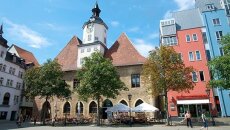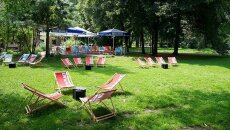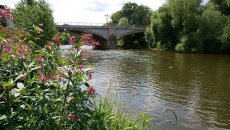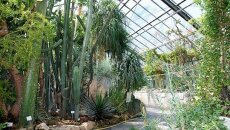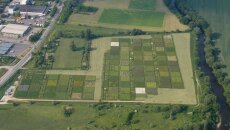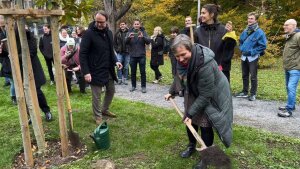The Master's program Evolution, Ecology and Systematics provides in-depth knowledge of biological systems with a clear focus to current research in organismic and evolutionary biology.
The study is interdisciplinary, so that competencies in ecology, biodiversity (including taxonomic knowledge), evolutionary biology, paleontology, systematics and phylogenetics can be acquired at different organizational levels and for different groups of organisms.
Our mission statement is to provide all students with an individual profiling based on a well-founded basic education. The students complete the five compulsory modules on Basics in Evolutionary Research, Ecology and Diversity, Species Identification, Experimental Design and Analysis of Biological Data, as well as an Excursion. For the required elective modules, we leave a great deal of scope for individual choices from modules of the participating Institutes en for Zoology and Evolutionary Research, Ecology and Evolution and Biodiversity.
Our graduates will be able to carry out research-oriented activities at universities, non-university research institutions, museums, public authorities, associations or the private sector.
Imagefilm: The honest professor
Video: Universität Jena-
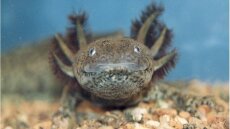 AxolotlFoto: Spez. Zoologie
AxolotlFoto: Spez. Zoologie -
HeuschreckeFoto: Ökologie
-
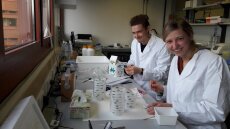 Studies im LaborFoto: Nicole van Dam
Studies im LaborFoto: Nicole van Dam -
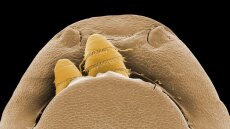 Larvengebärendes Weibchen eines FächerflüglersFoto: Spez. Zoologie
Larvengebärendes Weibchen eines FächerflüglersFoto: Spez. Zoologie -
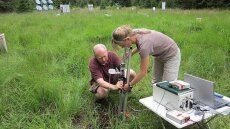 Messung von mikrobieller Aktivität und Stoffumsätzen in Moorgebiet Schlöppner BrunnenFoto: Aquatische Mikrobilologie
Messung von mikrobieller Aktivität und Stoffumsätzen in Moorgebiet Schlöppner BrunnenFoto: Aquatische Mikrobilologie -
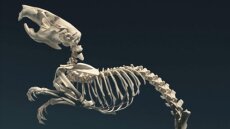 Nach röntgenvideographischen Aufnahmen rekonstruiertes Skelett einer RatteFoto: Spez. Zoologie
Nach röntgenvideographischen Aufnahmen rekonstruiertes Skelett einer RatteFoto: Spez. Zoologie -
Gelbwürfliger Dickkopffalter mit SchneckeFoto: Holger Schielzeth
-
Probenahme von volativen StoffenFoto: Nicole van Dam
-
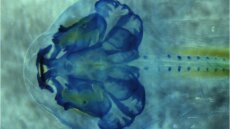 Aufgehellter Kopf einer KaulquappeFoto: Spez. Zoologie
Aufgehellter Kopf einer KaulquappeFoto: Spez. Zoologie -
Pflanzen im GewächshausFoto: Nicole van Dam
-
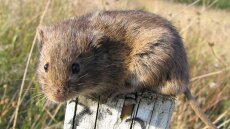 Feldmaus (Microtus arvalis)Foto: Stefan Halle
Feldmaus (Microtus arvalis)Foto: Stefan Halle -
OrchideenwieseFoto: Spez. Botanik
Biology has a long tradition in Jena. The city was the workplace of the zoologist Ernst Haeckel, the botanist Matthias Jakob Schleiden and the geneticist and botanist Otto Renner. The infrastructure available to students and scientists in the field of Evolution, Ecology and Systematics is internationally outstanding and includes:
- the renowned zoological collection and exhibitions of the Phyletisches MuseumExterner Link,
- the Botanical Garden,
- the Haussknecht Herbarium (the largest herbarium in Germany),
- the long-term research facility Jena ExperimentExterner Link,
- the Collaborative Research Centre 1076 AquaDiva en
- the German Centre for Integrative Biodiversity Research (iDiv) Halle-Jena-LeipzigExterner Link
- and, of course, a well-stocked libraryExterner Link.
As mentioned earlier, distances are small in Jena. This applies too to that between research and teaching which are so closely integrated that students are able to grow confidently into their subject and to learn in an atmosphere of openness and cooperation between the institutes and tutors involved.
We look forward to receiving your application en as a student of the MEES in Jena!

